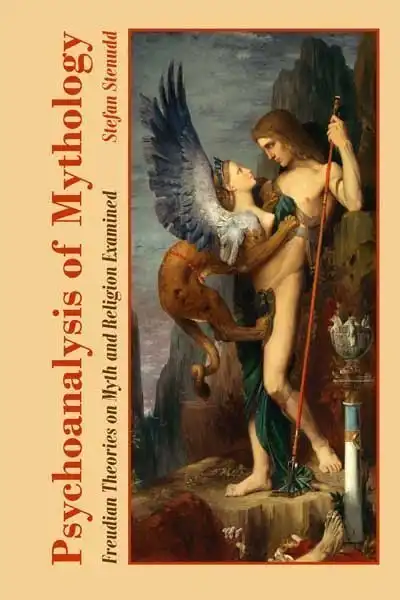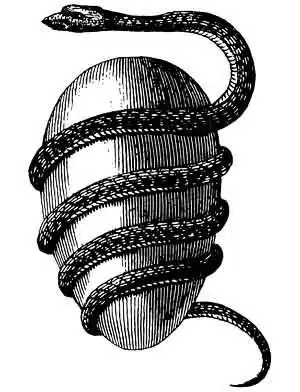
Psychoanalysis of MythologyFreudian Theories on Myth and Religion ExaminedSigmund Freud, the founder of psychoanalysis, and several of his followers used their psychological theories to explain the origin and functions of myths and religion. This book describes and critically examines their ideas as they presented them in their own texts. It is a strange journey through a world of thoughts restrained by psychoanalytical dogma and loyalty to its creator, with its own myths of sorts and — in spite of scientific claims — a fidelity that can be characterized as religious. Stefan Stenudd is a Swedish author and historian of ideas. Within the history of ideas he researches thought patterns in creation myths, as well as theories about mythology through history.
How to get the bookIf you want to buy the book, you can do so at most Internet bookstores. Click the image below to see the book at Amazon (paid link). It is also a Kindle ebook. The link takes you to your local Amazon store (or to Amazon.com).
 
Introduction(Excerpts from the book)
The beliefs expressed in myths, as well as in rites, gradually ceased to be dismissed as merely heathen misconceptions as opposed to the sacred truth of the Christian doctrine. Instead, they became respected fields of study of the human nature, inspired by the quickly growing mass of documented myths and increasing knowledge about religious traditions among distant and obscure cultures. By the end of the 19th century, the literature on the subject was immense, and mostly pointing to psychological explanations to the structure and content of myths, as well as for the birth of religions and their spiritual meaning.
The two persons most influential in the emergence of psychological treatments of myth were Sigmund Freud and Carl Gustav Jung, the latter to a much wider extent than the former. Since both were connected to the psychoanalytical movement — Freud as its founder and Jung as his most prominent disciple until they parted ways — and their perspectives on man and myth involved unconscious parts of the psyche supposed to play much more of a role than mere emotions and instinctive stimuli, it is possible to label their theories on myth psychoanalytical.
ContentsIntroduction 7Sigmund Freud 15 Freudians 79 Karl Abraham 80 Otto Rank 90 Franz Riklin 116 Ernest Jones 121 Oskar Pfister 130 Theodor Reik 147 Géza Róheim 163 Helene Deutsch 172 Erich Fromm 179 Literature 225

MYTH
IntroductionCreation Myths: Emergence and MeaningsPsychoanalysis of Myth: Freud and JungJungian Theories on Myth and ReligionArchetypes of Mythology - the bookPsychoanalysis of Mythology - the bookIdeas and LearningCosmos of the AncientsLife Energy EncyclopediaOn my Creation Myths website:
Creation Myths Around the WorldThe Logics of MythTheories through History about Myth and FableGenesis 1: The First Creation of the BibleEnuma Elish, Babylonian CreationThe Paradox of Creation: Rig Veda 10:129Xingu CreationArchetypes in MythAbout CookiesMy Other WebsitesCREATION MYTHSMyths in general and myths of creation in particular.
TAOISMThe wisdom of Taoism and the Tao Te Ching, its ancient source.
LIFE ENERGYAn encyclopedia of life energy concepts around the world.
QI ENERGY EXERCISESQi (also spelled chi or ki) explained, with exercises to increase it.
I CHINGThe ancient Chinese system of divination and free online reading.
TAROTTarot card meanings in divination and a free online spread.
ASTROLOGYThe complete horoscope chart and how to read it.
MY AMAZON PAGE
MY YOUTUBE AIKIDO
MY YOUTUBE ART
MY FACEBOOK
MY INSTAGRAM
MY TWITTER
STENUDD PÅ SVENSKA
|
